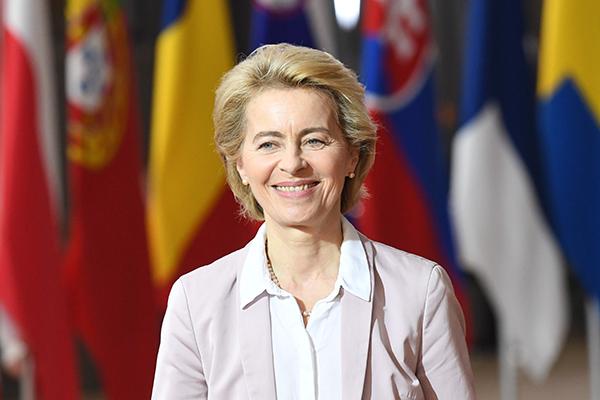The President of the European Commission, Ursula von der Leyen, took stock of the current state, priorities and challenges of the European Union
In the State of the Union address, she highlighted aid to Ukraine, the twin transition, AI legislation and other topics.
On Wednesday, September 13, in front of the European Parliament in Strasbourg, less than a year before the upcoming European Parliament elections, Von der Leyen presented the achievements of the European Commission, which, according to her, "delivered over 90% of the Political Guidelines" that she presented in 2019. According to the president, her green, digital and geopolitical Commission in cooperation with member states and the European Parliament successfully supports Ukraine in the context of the unauthorized Russian invasion, invests in partnerships around the world and has become global pioneer in digital civil rights. Ursula von der Leyen also emphasized that the European Commission continues to fight against violence against women and strives to achieve equality between women and men.

Europe and the ecological transition of businesses
The President of the European Commission first presented the achievements of the European Green Deal, which, according to her, has become a key document of the Union and "the European answer to the call of history" in the context of climate change. In this context, she highlighted the European support for companies in the green transition, which is illustrated by the growing number of clean steel factories in the EU, and which is enshrined in the Net-Zero Industry Act and the European Critical Raw Materials Act. The Commission is now to conduct a series of clean transition dialogues with representatives of European industry. At the same time, von der Leyen said that the Commission will continue to advocate for fair competition in the global market, especially regarding China's unfair export policies for electric cars and solar panels, and to this end is launching an anti-subsidy investigation into electric vehicles imported from China.
Europe and labor shortages, inflation and too much administrative burden for business
Regarding the socio-economic area, von der Leyen identified 3 main current challenges facing the EU: labor and skills shortages, inflation and the need to simplify business. Among the EU's main problems related to the labor market is the lack of available childcare services, which would facilitate the combination of work and family life. She also highlighted that 8 million people in the EU are neither employed nor enrolled in education or training. According to her, this represents the biggest obstacles to the competitiveness of the European economy, as the lack of skilled labor damages the capacity for innovation, growth and prosperity.
The EU must therefore continue to work on improving the accessibility of the labor market, especially for women and young people, and ensure skilled migration. Therefore, the Commission, together with the upcoming Belgian Presidency of the Council of the EU, is planning a new summit with the social partners in Val Duchesse in the first half of next year. As for the excessive administrative burden on business, next month the Commission will table the first legislative proposals aimed at reducing the reporting obligations of businesses at European level by 25%.
Europe and digital technology
Von der Leyen emphasized that digital technologies have become an integral part of the EU economies, which is evidenced by the fact that the 20% investment target in digital projects within the NextGenerationEU was significantly exceeded. However, the EU has not only learned to take advantage of digital technologies but also to face challenges, such as disinformation, the spread of dangerous content and threats to private personal data. In response, according to the President, the EU has become a global pioneer of citizens' rights in the digital world, thanks to the Digital Services Act and the Digital Markets Act.
According to von der Leyen, the same should also apply to artificial intelligence: "Europe, together with its partners, should lead the way on a new global framework for AI, built on three pillars: guardrails, governance and guiding innovation". The Commission therefore brought forward the AI Act – the world's first comprehensive pro-innovation AI law. Von der Leyen also announced the European Commission's new supercomputing initiative: “Europe has 3 of the 5 most powerful supercomputers in the world. The aim of the initiative is to make these high-performance computers available to AI start-ups to train their models.”
Ursula von der Leyen's speech was followed by the comments of MEPs. More information and a full transcript of the speech can be found on the website of the European Commission.